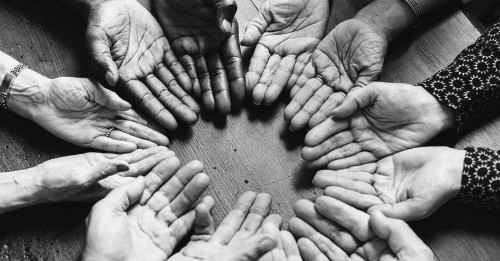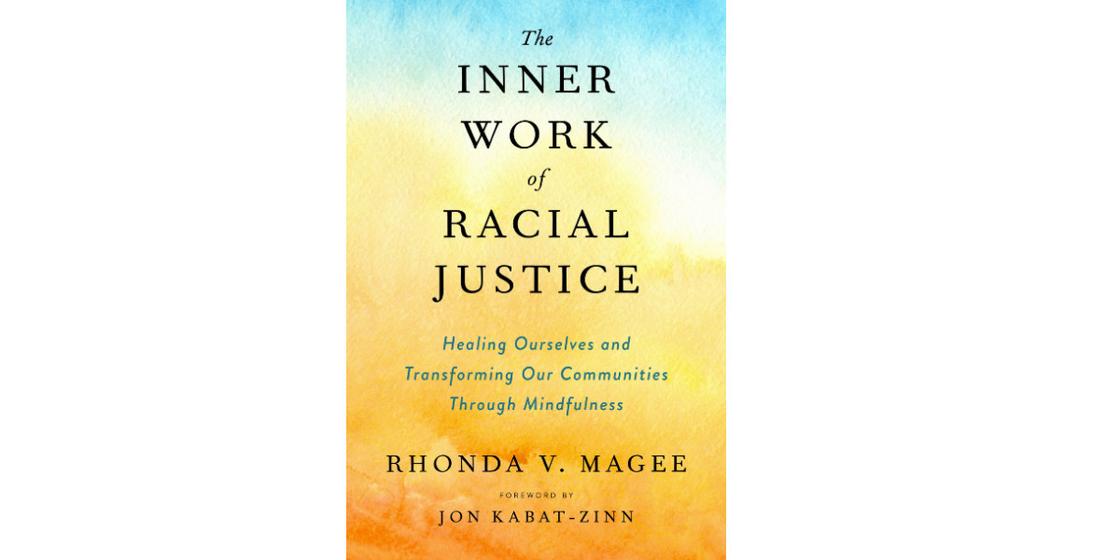Mindfulness and Racial Justice

By Rhonda Magee, guest contributor
What we call the self is shaped by the cultures in which we live. And because race is a cultural feature of societies built on racism, notions of self include notions of race. The racialized self is produced by and helps reproduce racism in our cultures. Mindfulness helps us understand and expand our notions of race. And yet, talking about race and racism and examining these through the lens of mindfulness is uncommon. This is not to say that it is not being done at all. But many practitioners of mindfulness have been taught, whether explicitly or implicitly, that looking at racism and exploring efforts to address it—or to otherwise engage in talk of “justice” or “politics”—go against the core commitments of mindfulness. This may be a consequence of two factors.
The first has to do with the social locations of those who have brought mindfulness into the mainstream. Many of the teachers from Asia, to whom we owe most Western mindfulness practices, lived in cultures where racial difference has not been the dominant mode of oppression. And on top of that, most of the Western teachers of mindfulness are white in white-dominated cultures. As a result, they have had to work harder to see their own race and racism in the world, and to break the cultural norms against doing so.
The second has to do with the fact that Western notions of social justice are not reflected in contemplative traditions, at least not in the same manner or to the same degree.
Contemplating Racial Justice
So let’s pause together and reflect: What is social justice?
The heart of what I mean by social justice is that racial justice, like compassion, is just one form of an ethically grounded, mindful response to suffering in our lives. Moreover, mindful racial justice seeks to alleviate not merely isolated incidents of racial suffering, but all suffering caused by racism—including suffering that is very hard to see. This necessarily presents a profound invitation to a lifelong practice of awakening that seeks greater liberation and justice for us all. Racial justice cannot exist apart from the effort to alleviate the socially constructed, unevenly distributed suffering of all marginalized people, or what I would call “social justice.” And social justice cannot exist apart from racial justice.
Grounding in Racial Justice
We live in a world especially polarized by race and racism. Experts in peacemaking have noted that we must find ways to talk with one another across these lines of constructed differences, if we are to have any hope of resolving and dissolving those differences. And we must keep talking about these issues.
But just talking about race, even among people who know and love, seems so dicey and so fraught with potential for conflict and confusion that we need support.
We need support in the cultivation of the ability to sit compassionately with and talk about our own particular experiences with race, race-related injury, and alienation. We need help developing the capacity to be able to listen to the very different stories of others with compassion: to have conversations across lines of real and perceived difference that help and heal, rather than hamper and hurt; and to exercise the will to come back for more, with increasing capacity for empathy and a deepening desire for others to heal and thrive in the world.
From The Inner Work of Racial Justice by Rhonda V. Magee, published by TarcherPerigee, an imprint of Penguin Publishing Group, A division of Penguin Random House, LLC. Copyright © 2019 by Rhonda Varette Magee.
Rhonda V. Magee is Professor of Law at the University of San Francisco, and is an internationally-recognized thought and practice leader on integrating Mindfulness into Higher Education, Law and Social Justice and a Fellow of the Mind and Life Institute. A founder within the movement to bring together mindfulness and law, she is the current Chair of the Board of the Search Inside Yourself Leadership Institute.


1 comment
Why are you always posting rac1st anti white trash?
Leave a comment